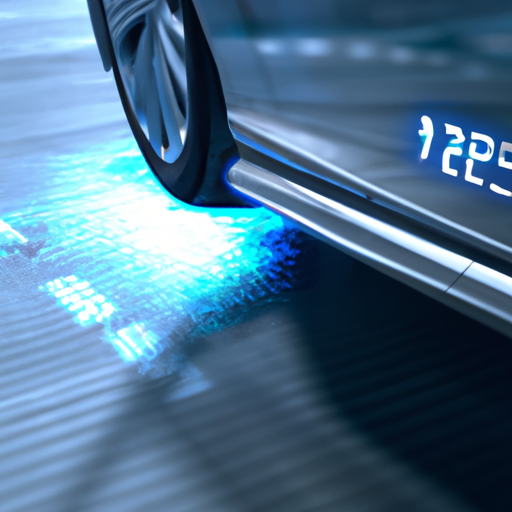Cost Efficiency: Gas cars are generally more affordable than electric cars, both in terms of initial purchase price and long-term maintenance costs. Gasoline is also more widely available and cheaper than electricity, making it a more cost-effective option for most drivers

When it comes to choosing a car, one of the most important factors to consider is cost efficiency. After all, a car is a significant investment and it is important to choose one that not only fits your needs but also your budget. In recent years, there has been a lot of buzz around electric cars and their potential to be more cost-effective than traditional gas cars. However, upon closer examination, it becomes clear that gas cars still hold the upper hand in terms of cost efficiency.
One of the main reasons why gas cars are more cost-effective is their initial purchase price. Electric cars are still relatively new in the market and their technology is constantly evolving, making them more expensive to produce. This translates to a higher price tag for consumers. On the other hand, gas cars have been around for decades and their technology is well-established, making them more affordable for the average consumer. In fact, the average price of an electric car is almost double that of a gas car.
But the cost efficiency of gas cars doesn’t end with the initial purchase price. When it comes to long-term maintenance costs, gas cars also have the upper hand. Electric cars have complex and expensive battery systems that require regular maintenance and replacement. These batteries can cost thousands of dollars to replace, significantly increasing the overall cost of owning an electric car. Gas cars, on the other hand, have a simpler and more affordable engine system that is easier and cheaper to maintain.
Another factor to consider when comparing the cost efficiency of gas and electric cars is the availability and cost of fuel. Gasoline is widely available at gas stations all over the world and is relatively cheap compared to electricity. This makes it a more convenient and cost-effective option for most drivers. Electric cars, on the other hand, require charging stations which are not as readily available and can be more expensive to use. This can be a major inconvenience for drivers, especially on long road trips.
Moreover, the cost of electricity can vary greatly depending on where you live. In some areas, electricity rates can be significantly higher than gasoline prices, making electric cars less cost-effective. Additionally, the cost of installing a charging station at home can also add to the overall cost of owning an electric car. Gas cars, on the other hand, can be refueled at any gas station, making them a more convenient and cost-effective option for most drivers.
It is also worth noting that gas cars have a longer lifespan compared to electric cars. This means that you can get more mileage out of a gas car before needing to replace it, making it a more cost-effective option in the long run. Electric cars, on the other hand, may require replacement of their battery systems after a certain number of years, adding to the overall cost of ownership.
In conclusion, while electric cars may seem like a more environmentally friendly option, gas cars still hold the upper hand when it comes to cost efficiency. Their lower initial purchase price, simpler and more affordable maintenance costs, and the availability and cost of fuel make them a more cost-effective option for most drivers. As technology continues to advance, it is possible that electric cars may become more cost-efficient in the future. But for now, gas cars remain the more practical and budget-friendly choice for the average consumer.
Range and Refueling Time: Gas cars have a longer range and can be refueled in a matter of minutes, while electric cars often require hours to fully charge and have a limited range. This makes gas cars a more practical choice for long-distance travel and for those who don’t have access to charging stations
Gas cars have been the primary mode of transportation for decades, and for good reason. They offer a range and refueling time that is unmatched by electric cars. While electric cars have been gaining popularity in recent years, there are still many reasons why gas cars are a better choice, especially when it comes to range and refueling time.
One of the main advantages of gas cars is their longer range. Gas cars can travel hundreds of miles on a single tank of gas, while electric cars typically have a range of around 200-300 miles. This means that gas cars are better suited for long-distance travel, such as road trips or commuting to work in a neighboring city. With a gas car, you don’t have to worry about constantly stopping to recharge, allowing you to reach your destination without any interruptions.
On the other hand, electric cars have a limited range and require frequent charging. This can be a major inconvenience for those who live in rural areas or don’t have access to charging stations. Even with the increasing number of charging stations being installed, they are still not as readily available as gas stations. This makes gas cars a more practical choice for those who need to travel long distances or don’t have easy access to charging stations.
Another advantage of gas cars is their quick refueling time. With a gas car, you can simply pull up to a gas station, fill up your tank, and be on your way in a matter of minutes. This is especially beneficial for those who are always on the go and don’t have the luxury of waiting hours for their car to charge. In contrast, electric cars can take several hours to fully charge, depending on the type of charger being used. This can be a major inconvenience for those who are in a rush or have a busy schedule.
Furthermore, gas cars have a wider range of options when it comes to refueling. With electric cars, you are limited to charging stations, which may not always be available or convenient. Gas cars, on the other hand, can be refueled at any gas station, making it easier to find a place to refuel no matter where you are. This also means that gas cars are more suitable for long road trips, as you can easily find a gas station along the way.
In addition to their longer range and quicker refueling time, gas cars also have a lower cost of ownership. While electric cars may have lower fuel costs, they often come with a higher price tag. This can make it difficult for the average consumer to afford an electric car. Gas cars, on the other hand, are more affordable and have a wider range of options to fit different budgets.
In conclusion, while electric cars may be seen as the future of transportation, gas cars still have many advantages, especially when it comes to range and refueling time. Gas cars offer a longer range, quicker refueling time, and a wider range of options for refueling. They are also more practical for long-distance travel and for those who don’t have access to charging stations. While electric cars may continue to improve and become more accessible, gas cars remain a reliable and practical choice for many drivers.




